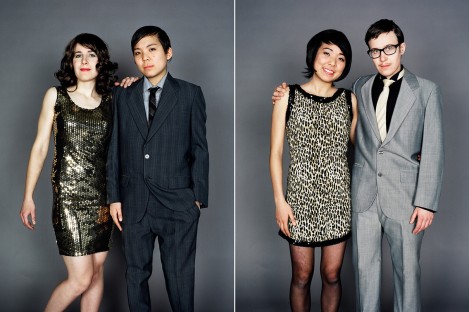Dear Reader,
Welcome back! So what did you come up with? What do you do that displays your gender? How do you dress? How do you behave? What do you do to your body?
If you’re cisgender and typical of your gender, you probably do or have done some of the following:
Cisgender woman:
- Have long hair
- Wear makeup
- Paint fingernails/toenails
- Have pierced ears
- Shaved their legs
- Wear dresses/skirts
- Cry in front of a close friend
- Typically sit with legs together or crossed closely
- Ask for directions
Cisgender man:
- Keep hair trimmed short
- Wear a tie
- Grow facial hair (on purpose)
- Gone topless in public
- Typically sit with your legs spread apart wider than your hips
- Display physical aggression
- Explain something in a patronizing tone to a woman who already knows about the topic.
Ok, so the last lines for each are jokes, but if you’re cisgender, I’ll bet you’ve performed many of the traits I listed for your gender. But wait, you say, “I’ve done some of the things on the other list, too!” Well then, congratulations – you’re transgender! No not really. That’s one of the confusing things about gender roles – they are sometimes more like suggestions, and some of the traits associated with the other gender can be safely performed. In today’s world, it’s socially acceptable for a man to have long hair, just as it’s socially acceptable for a woman to have short hair. But some of these traits are strongly associated with a gender; a man who wears a dress is likely to attract negative attention, as is a woman who sports a beard.

With a person who is transgender, the traits commonly associated with the gender they feel applies to them might become part of their gender expression; that is, a trans man might cut his hair short and adopt masculine clothes – slacks, dress shirts and ties; loose fitting athletic shorts and shirts; athletic hats (baseball caps, for example). He might also work to lower the pitch of his voice and wear clothing designed to hide his breasts (a binder). A trans woman might grow her hair or wear a wig, remove her facial and body hair, and wear more feminine clothes and/or accessories – skirts/dresses, rings/bracelets, etc. She might work to raise the pitch of her voice and wear underwear and/or prosthetics to present a more feminine silhouette – breast forms, butt shapers, a gaff. The things we do which signal our gender to others make up our gender expression.

 Just like sex and gender aren’t the same thing, neither are gender and gender expression. Many trans and genderqueer people do not feel safe expressing their gender in visible ways. Some don’t feel the need to express as their proclaimed gender; they might be comfortable with expressing as the gender they were assigned, even though they recognize their own gender as different from that assignment. But for many trans and genderqueer people, expression is very important. Expression is part of integrating their gender experience into their personality, and perhaps as a signal to others how they want to be perceived and treated. How would you feel if you were not allowed to express your gender in alignment with what you know it is?
Just like sex and gender aren’t the same thing, neither are gender and gender expression. Many trans and genderqueer people do not feel safe expressing their gender in visible ways. Some don’t feel the need to express as their proclaimed gender; they might be comfortable with expressing as the gender they were assigned, even though they recognize their own gender as different from that assignment. But for many trans and genderqueer people, expression is very important. Expression is part of integrating their gender experience into their personality, and perhaps as a signal to others how they want to be perceived and treated. How would you feel if you were not allowed to express your gender in alignment with what you know it is?
Why am I using vague language when describing gender expression? Because gender expression is unique for each person – cis or trans. Lots of cisgender women never wear dresses or skirts, but do not consider themselves to be any less of a woman. The same goes for some men and ties. Also, for a trans/genderqueer person, gender expression may serve as a kind of therapeutic purpose: outwardly expressing your gender may help you feel aligned with how you are experiencing your gender internally.
Which brings us to my next homework assignment – another thought experiment: Imagine that you woke up one day and your body had changed to the opposite sex. How would you feel about your body? How would you feel when other people treat you like the gender associated with your body’s sex? How would you feel about your relationships with your loved ones? How would they feel about you? Would you be able to easily adapt and accept being in a body of the opposite sex?
Until next time,
Me

What a well written, well thought out and kindly expressed post!
LikeLiked by 1 person
Thank you!
LikeLiked by 1 person
You know, there are far too few people on this earth who know how to be kind and fewer still who act on being kind.
LikeLiked by 2 people
Thanks! My goal with my blog is simply to share my experience – one which many people might find to be very unusual – in the hopes that others may find that a person who is gender non-conforming is not someone to be scared, angry or even uncomfortable of. For me, the best way to not be scared of something is to understand it, so my posts (at least for now) are aimed at helping people understand this experience.
LikeLike